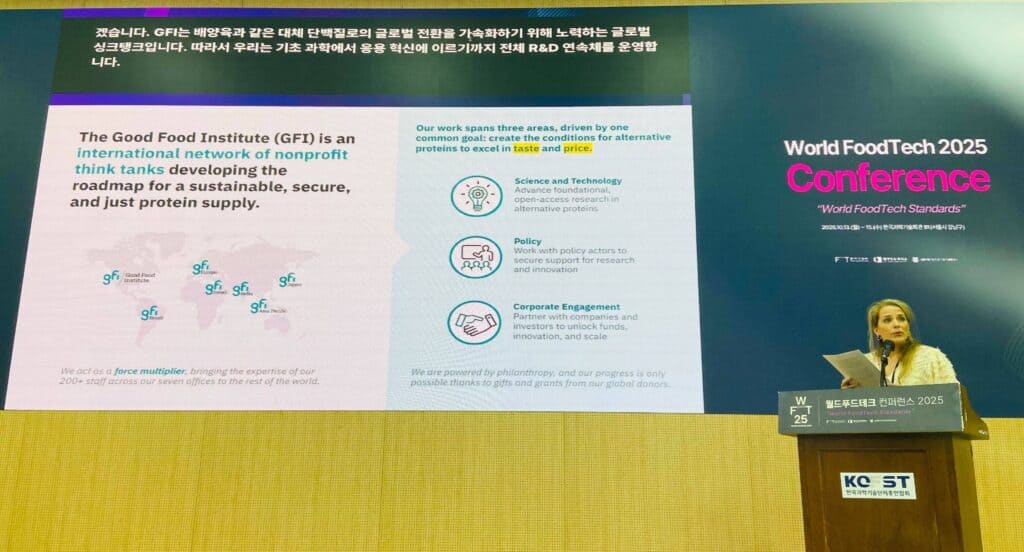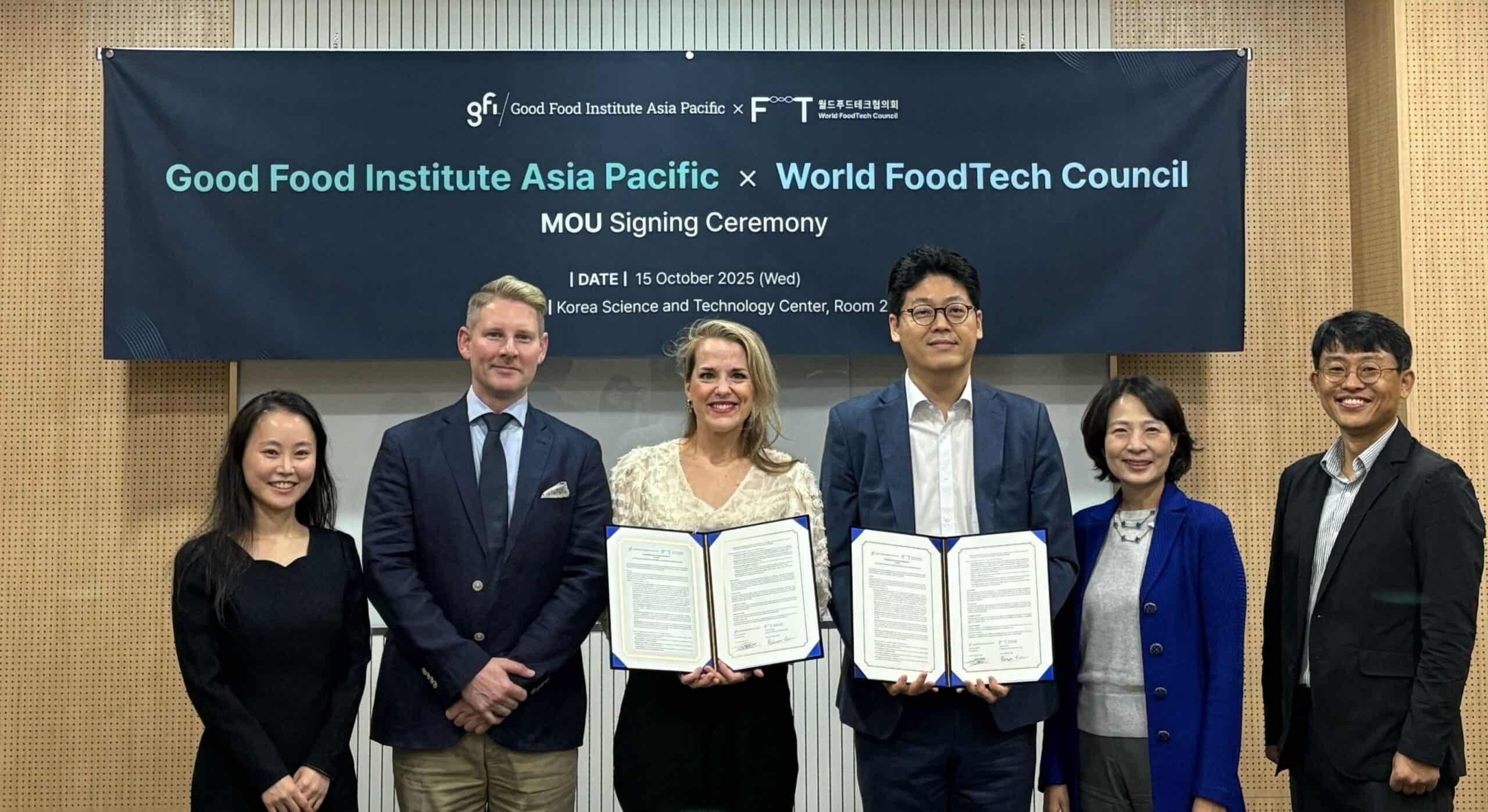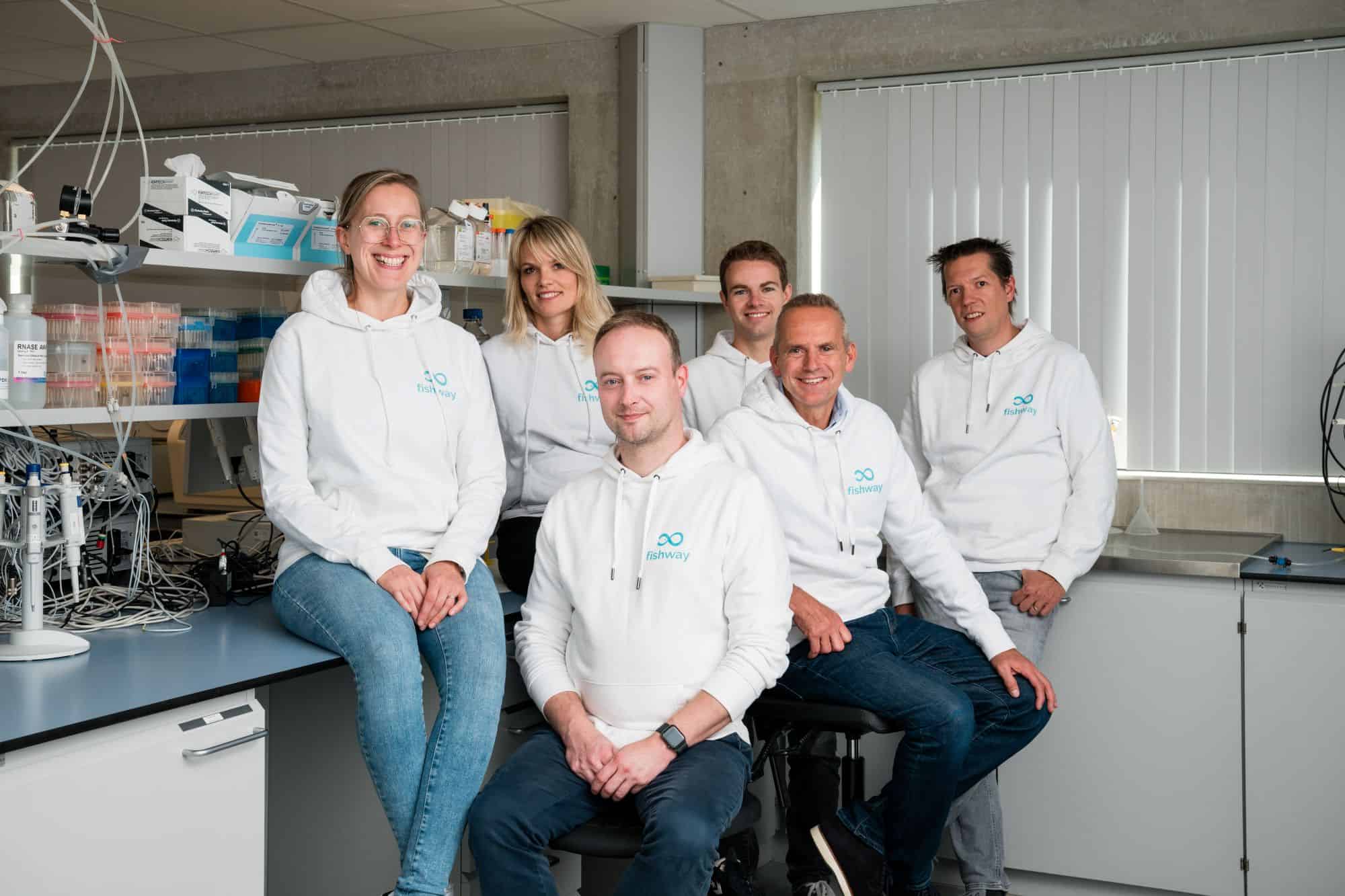The World FoodTech Council and the Good Food Institute Asia Pacific (GFI APAC) have entered a bilateral partnership aimed at advancing South Korea’s growing alternative protein sector. The collaboration, announced today in Seoul, focuses on enhancing domestic research and development (R&D) efforts and shaping regulatory frameworks for novel foods.
“South Korea has invested more money into scientific R&D as a percentage of GDP than any other Asian country”
At a signing ceremony attended by GFI APAC CEO Mirte Gosker and World FoodTech Council co-chair Prof. Ki Won Lee, the organizations outlined their commitment to supporting South Korea’s ambitions in the alternative protein space. The ceremony was followed by a keynote address from Gosker at the World FoodTech Conference.
In her speech, Gosker noted South Korea’s long-standing investment in scientific research. “For more than a decade, South Korea has invested more money into scientific R&D as a percentage of GDP than any other Asian country—an asset the country is now leveraging to become an alternative protein powerhouse,” she said. She added that the region’s growing focus on alternative proteins mirrors its early efforts in renewable energy technologies.

As part of the partnership, the two organizations will work together to support policy development, boost R&D initiatives, and foster talent in adjacent fields, encouraging cross-disciplinary contributions to the development of future food systems.
A flurry of policy and infrastructure developments
This collaboration comes amid a series of developments in South Korea’s alternative protein ecosystem. In December 2024, the government announced the establishment of a Food Tech Research Support Center for plant-based food development, set to open in 2026.
The same month, the Food Tech Industry Promotion Act was enacted, aiming to integrate innovative technologies into the food sector to enhance quality of life, create jobs, and boost the economy. Another Food Tech Research Support Center focusing on cultivated meat is also slated to open in 2027 in North Gyeongsang Province. This center will be located near the Cell Culture Industry Support Center, which opened in 2023.
Prof. Ki Won Lee noted that food technology is poised to address some of the most pressing global challenges, such as population growth, climate change, and public health concerns. “In partnership with GFI, we are committed to positioning K-FoodTech as a key driver of the future food system and a leader in this transformative industry,” he said.

Despite these advancements, South Korea’s presence in global alternative protein discussions remains limited. The AltProtein Asia scientific symposium held earlier this year in Singapore identified this gap. Leading scientists from across Asia gathered to discuss the technical challenges of scaling cultivated meat and other alternative proteins, but South Korea’s representation was minimal. GFI APAC’s goal is to ensure that South Korea plays a more prominent role in such discussions moving forward.
Korea’s biotech edge
Yeonjoo La, GFI’s South Korea Startup Lead, pointed out that the country’s robust biotech ecosystem positions it well to take on a central role in alternative protein development. She explained, “South Korea is home to one of Asia’s most advanced tech ecosystems, including 10 biotech innovation and manufacturing clusters, dozens of alternative protein companies, and the highest number of researchers per capita of any country on Earth.
“By connecting Korea’s scientists, policymakers, and technologists with their overseas counterparts, we can supercharge plant-based and cultivated meat development.”




